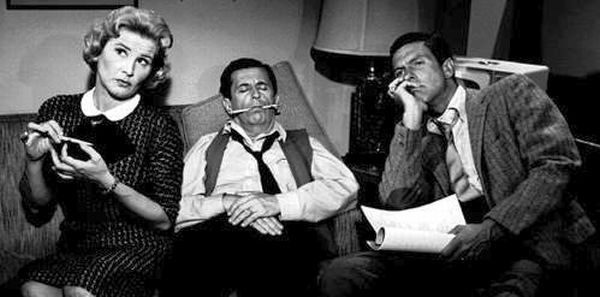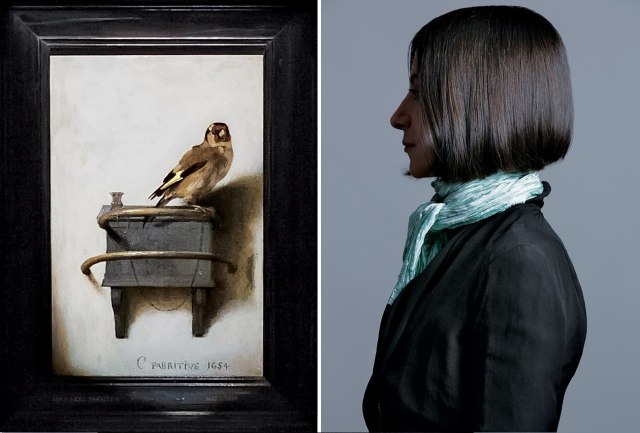1.
“It’s Tartt—But Is It Art?“: Evgenia Peretz of Vanity Fair asks why literary critics are dismayed by Donna Tartt’s acclaimed hit novel, “The Goldfinch.” Related: One of the book’s naysayers is Alexander Nazaryan of Newsweek, as evidenced in his review, “Donna Tartt’s ‘The Goldfinch Neither Sings Nor Flies.” See also: In The Paris Review, Matthew Sherrill argues against calling the book “Dickensian.”
“No novel gets uniformly enthusiastic reviews, but the polarized responses to ‘The Goldfinch’ lead to the long-debated questions: What makes a work literature, and who gets to decide? The questions are as old as fiction itself. The history of literature is filled with books now considered masterpieces that were thought hackwork in their time. Take Dickens, the greatest novelist of the Victorian period, whose mantle writers from John Irving to Tom Wolfe to Tartt have sought to inherit. Henry James called Dickens the greatest of superficial novelists … ‘We are aware that this definition confines him to an inferior rank in the department of letters which he adorns; but we accept this consequence of our proposition. It were, in our opinion, an offence against humanity to place Mr. Dickens among the greatest novelists. . . . He has added nothing to our understanding of human character.’”
2.

“The Meta-Homophobia of ’22 Jump Street’“: Indiewire‘s Sam Adams analyzes how directors Phil Lord and Christopher Miller have managed to have their cake and eat it too.
“When a third wheel enters Schmidt and Jenko’s partnership in the form of a beaming blond quarterback played by Wyatt Russell, Lord and Miller stage his meeting with Jenko like a romantic comedy’s meet-cute, throwing in a strained pun involving the collision of a meat sandwich and a Q-Tip for good measure. Later, Jenko blows his cover when one of the drug dealers he’s meant to be hiding from uses an anti-gay slur (hint: the same one Hill had recently had to apologize for using in public), dressing him down with a lecture right out of his Human Sexuality 101 class. The problem is that ’22 Jump Street’ drags out the joke for so long that it that the meta- starts to wear off, especially once it becomes clear they have no intention of taking it to its logical conclusion. Schmidt and Jenko are like a gay couple, but they’re not gonna do anything yucky.”
3.

“Why Jerry Seinfeld Doesn’t Buy the ‘Burden of Celebrity’“: An enlightening interview with the comedy icon conducted by Scott Raab of Esquire.
“The burden of celebrity? You got the wrong guy. Anybody that so-called bothers you you’re making them happy. What the hell else am I here to do? If I could make someone feel better? There are people that are ill-mannered. But I like to help people with their manners. “You know, you’re a total stranger. You can’t just yell at me. I don’t know you.” The first time you get stopped by a cop for speeding—and in your side-view mirror you see this guy coming up to the car and he’s got this look on his face like I’m going to take this guy to town—and as soon as he sees your face he bursts into a big smile, you don’t complain about celebrity anymore.”
4.

“A writer’s room of N.Y.’s own“: Lisa Takeuchi Cullen of TimesUnion.com discusses the “dearth of TV writer jobs in New York,” and how it hits “women and minorities hardest.”
“The Empire State Film Production Credit has resulted in a job surge among many skilled workers in New York, from cameramen to actors, location scouts to production assistants, gaffers to assistant directors. But not writers. Out of the $420 million tax break, exactly none is allocated to us. So even as more shows shoot here, they don’t staff here. Only a handful of network TV dramas, including CBS’s ‘Blue Bloods’ and NBC’s ‘Law & Order: SVU,’ have New York writers’ rooms. Late-night shows including ‘Saturday Night Live’ and ‘The Daily Show’ provide some coveted comedy jobs; daytime dramas, or soaps, no longer do.”
5.

“Orange is the new Hill Street Blues“: RogerEbert.com contributor Libby Hill pens a typically excellent piece for The AV Club about the Netflix hit’s roots in 80s TV drama.
“While ‘Hill Street Blues’ had its Frank Furillo and ‘St. Elsewhere’ its Donald Westphall, those characters served as touchstones. They were charismatic, easily recognizable characters that oriented viewers in the world of the series; characters the show could always turn to for a quick moment of moral clarity, but didn’t have to focus on. Then, as audiences found themselves more comfortable with the series, these protagonists were shaded into something decidedly more complex. Piper Chapman plays this role in ‘Orange Is The New Black’—she’s introduced as a known quantity, a WASPy, entitled woman about to go on the adventure of a lifetime. But over time that summation is largely undone, revealing Piper to be a complicated composite of insecurity and impulse, a need to do good undone by so much incompetence.”
Image of the Day

Yup, “Dumb and Dumber To” is indeed a reality. Here’s the trailer to prove it. Though Roger Ebert didn’t much care for the first one, it did include a moment that made him laugh so hard he embarrassed himself in the screening room.
Video of the Day
Online film critic Chris Stuckmann offers his take on “22 Jump Street,” claiming that it contains the funniest end credit sequence he’s ever seen.












